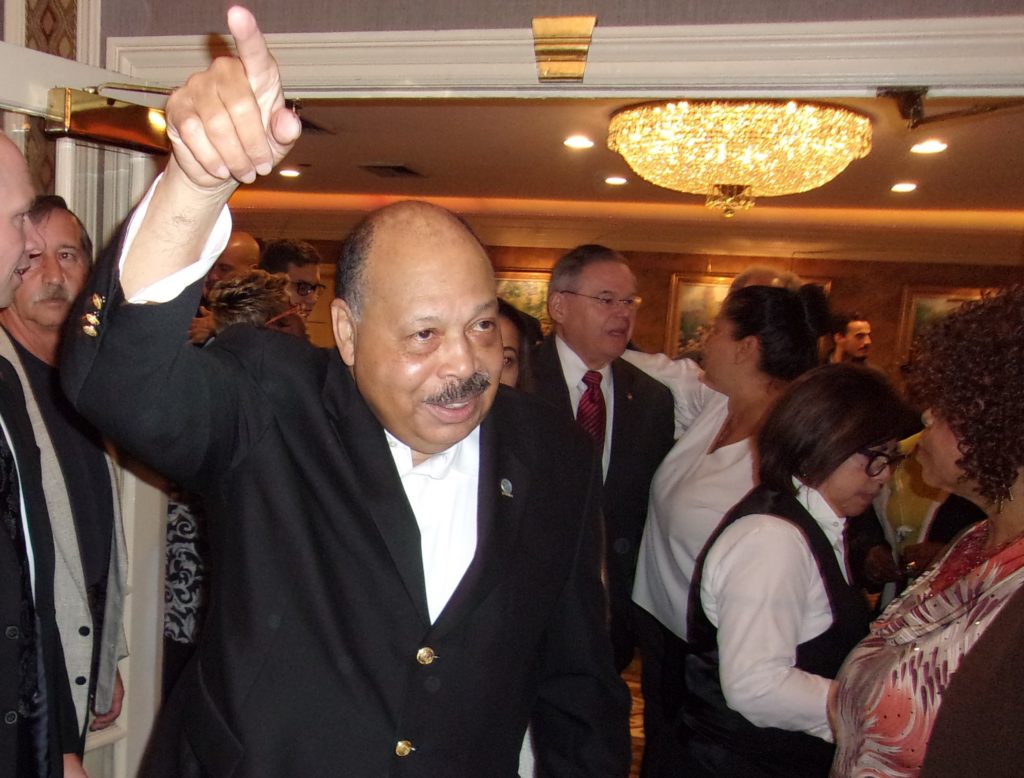Stronger Parties Could Reduce Polarization

Despite the antipathy toward political parties that can be traced to the founding of the Republic, political parties, which help elected officials work together and find common ground, may be just the antidote for these highly partisan and combustible times.
Foremost among the many roles of political parties is to organize government. Party leaders influence elections and ultimately government policy. By strengthening parties, compromise and moderation, rather than polarization, is more likely.
American’s historical aversion to political parties dates to colonial times when royalists squared off against patriots, then later federalists against anti-federalists.
Upon leaving office President George Washington in his farewell address to the nation said, “Let me . . . warn you in the most solemn manner against the baneful effects of the Spirit of Party.”
Washington was unhappy over the factionalism within his own government between rivals Thomas Jefferson and Alexander Hamilton.
Jefferson himself believed that an enlightened public would reject parties while James Madison thought that a growing variety of interests would dampen the unfolding of mass parties.
Though anti-party sentiment existed from the beginning, at least among the elites of early American society, it was not until the Progressive Era of the late 19th and early 20th centuries that an aversion to parties took root among the general population.
In fact, from the 1830’s to the 1890’s, political parties were an accepted part of American life. This period, which included the onset of mass parties and party machines, coincided with an expansion of the electorate as well as with significant European immigration and America’s industrial revolution.
Though the spoils system, with its jobs and contracts for supporters, created potential for misdeeds, nevertheless the political parties had their virtues. They helped immigrants assimilate into the country and adapt to the social disruption wrought by the industrial revolution.
Yet, despite the positive role that political parties played, the inequalities of the industrial revolution and concern about corrupt machine politics aroused reformers, who, by 1910, had coalesced into a progressive third-party movement.
The reforms of the Progressive movement would not only undermine party machines and bosses, but reformers, with the aid of a “muckraker” press, nurtured an overall cynicism toward political parties among a large swath of the population.
The Progressive reforms included primary elections, administration of elections transferred from parties to state governments, the power to oust bad officials through recall elections, and initiative and referendum, which gave the public more direct control over policy.
Moreover, the era brought about amendments to the Constitution that would give women the right to vote as well as direct election of U.S. senators.
While the Progressive Era increased cynicism toward political parties and substantially weakened them, it did not kill them off. Instead, parties survived and became far more accountable to the public.
This fact has implications for today. By strengthening modern parties and their leadership, parties may serve as the solvent that calms the highly charged political environment of current times.
Nationally and in New Jersey, politics and elections have become increasingly influenced by independent groups and social media. From 2005 – 2017, for example, independent spending grew in state elections by almost 11,500 percent compared to party spending that lagged far behind.
Social media, including blogosphere, platforms like Facebook, Twitter, and Instagram, are combining with independent groups to greatly individualize politics, a trend which contributes to polarization, rancor, and overall dissatisfaction and decreasing trust in the institutions of government.
A stronger party system can help to ameliorate this division. Disciplined political parties organize majorities in government that are crucial to governing. As long-standing institutions, political parties have provided a training ground for leadership by allowing individuals to learn about the relationship between elections and governance, and to gain experience necessary for bringing people together on behalf of the public good.
Further, political parties encourage leaders to work together rather than at cross purposes and provide an environment that promotes compromise and the bringing forth of majorities. In contrast, single issue independent groups and social media foster individual politics and division.
In New Jersey, the Election Law Enforcement Commission has put forth several proposals for strengthening political parties.
These include removing tight caps on contributions from public contractors that have seriously depleted party coffers, increasing general contribution limits that have been frozen since 2005, requiring independent spenders to fully disclose their campaign finances just like parties and candidates, and tightening limits on contributions by public contractors to political action committees.
While perhaps not a panacea for changing the political and electoral landscape, strengthening the political party system would go far toward fostering a greater unity in the public square.
Jeff Brindle is the Executive Director of the New Jersey Election Law Enforcement Commission.
The opinions presented here are his own and not necessarily those of the Commission.





